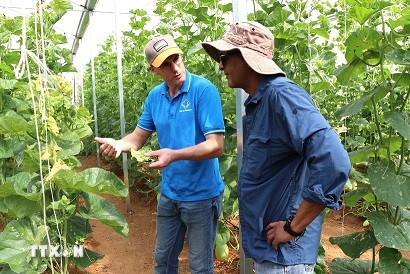The Eerie Beauty of 40-year-old Paris Ghost Town of Goussainville
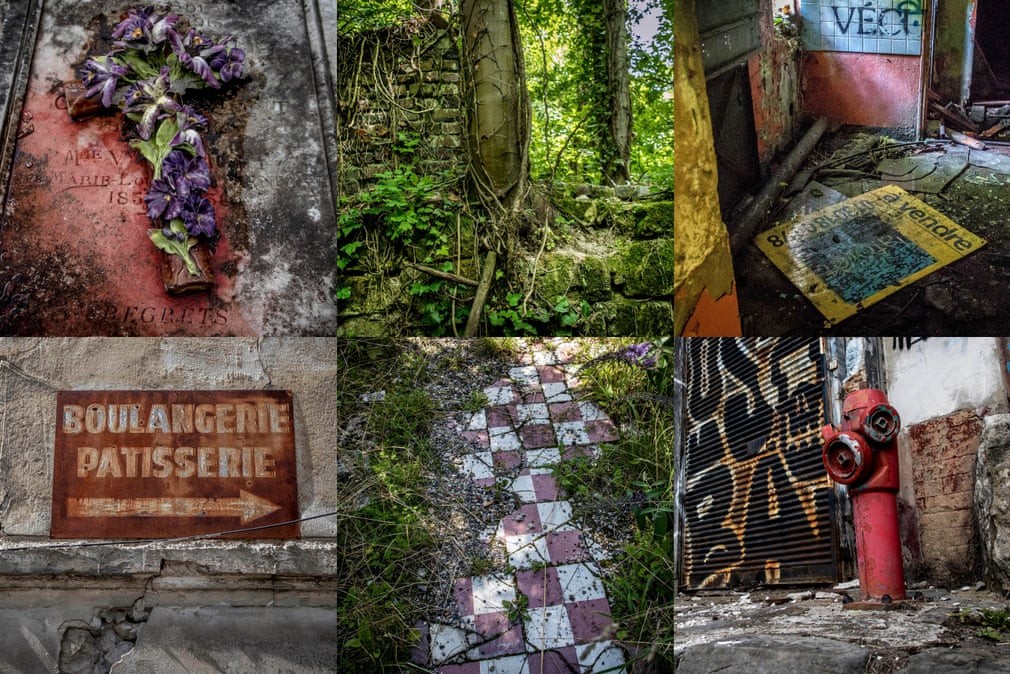 |
| Details of old abandoned houses at the Vieux Pays in Goussainville. Photograph: Christophe Petit-Tesson/EPA |
It was once the archetypal French village. Weekend markets with farmers selling local fresh produce drew hundreds to Goussainville-Vieux Pays’ squares, as church bells rang, and shops and cafes did a roaring trade.
But seemingly overnight Goussainville-Vieux Pays was left virtually deserted – a mixture of tragedy and noise pollution compelling the village’s rustic residents to abandon their homes, leaving them overgrown and rotting.
Why was the town abandoned?
The problems can be traced back to the mid-1960s when plans were drawn up for a new airport to be built in the suburbs north of Paris.
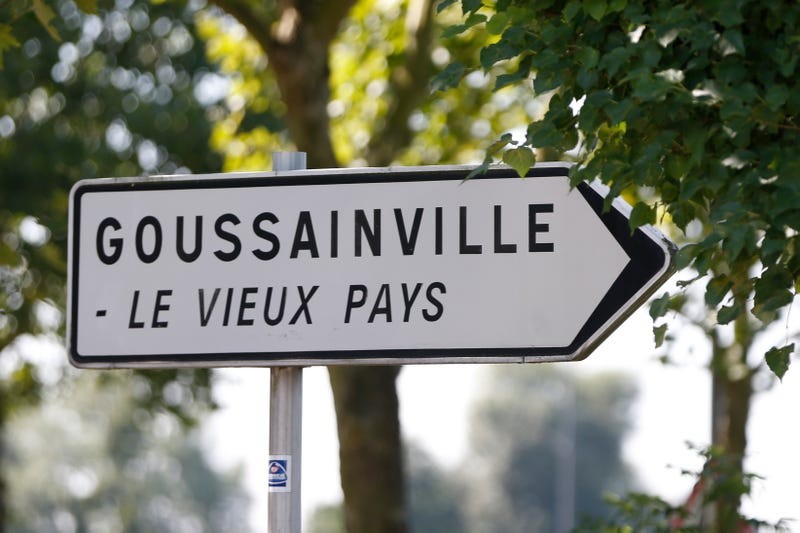 |
| Photo: Business Insider |
The area surrounding Goussainville-Vieux Pays, with its large expanses of green space and location just 12 miles from the capital, was seen as ideal for what would become one of the world’s major aviation centres.
But less than a year before the airport was finished, tragedy hit Goussainville-Vieux Pays when, during the Paris Air Show of 1973, a prototype of a Soviet supersonic aircraft named Tupolev TU-144 crashed in the village.
The plane, which is rumoured to have been built using stolen Concorde plans and eventually led to accusations of corporate espionage, smashed into a row of 15 houses and a school, causing the deaths of six crew and a further eight people on the ground.
The crash shook the village, with many residents choosing to leave immediately - some moving to neighbouring villages, others to Paris itself.
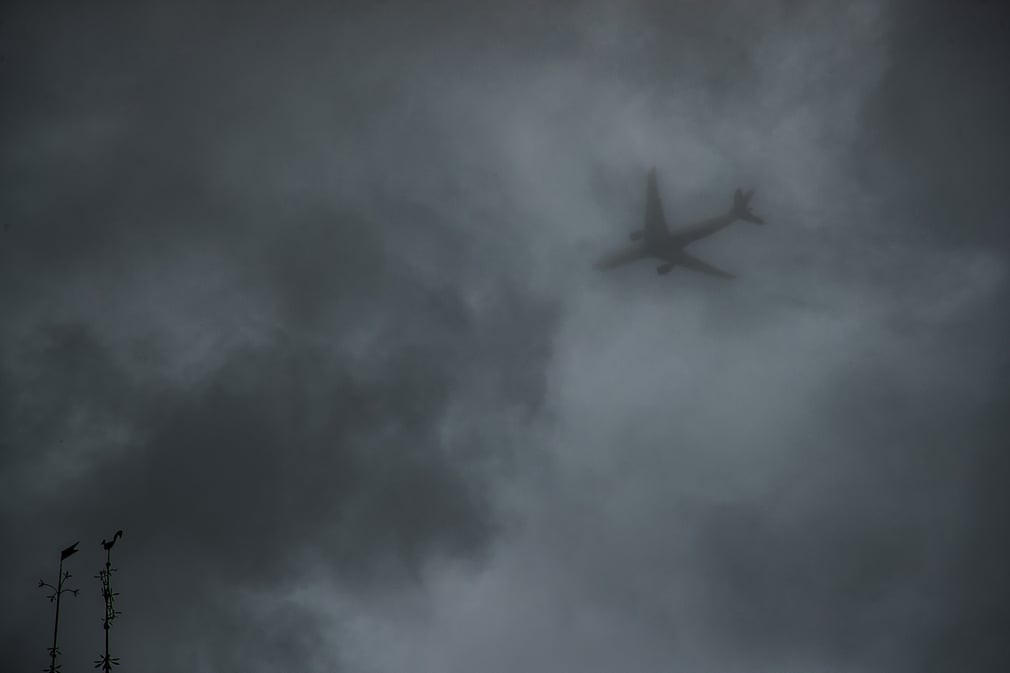 |
| A plane flies over the Vieux Pays in Goussainville. Christophe Petit-Tesson/EPA |
A year after the Tupolev crash, Charles de Gaulle Airport finally opened.
Built by architect Paul Andreu, the airport was always intended to be among Europe’s busiest, and overnight Goussainville-Vieux Pays went from a peaceful village to one blighted by noise pollution from the huge number of flights arriving and departing the hub every day.
The eerie beauty of the ruins
Goussainville-Vieux Pays was once a postcard perfect town, but less than a year before CDG opened in 1974 a plane crashed into it, destroying several houses and killing six crew and eight locals. The destruction caused many of the townspeople to evacuate immediately, with others following over the course of the subsequent year as the sound traffic from the airport and sorrow for the devastation of their town became too much. Now only a few residents remain.
Pierre Murillo, 82, in the house he has lived in since 1968 and that he has never wanted to leave despite the pressures he endured from the Paris Airport Company. He is one of the oldest residents of Goussainville. “Everyone knew each other,” he tells Quartz over strawberry juice at his wooden dining room table. “We would have festivals in the park and roast lamb. Everyone was so happy. It was such a wonderful village.”
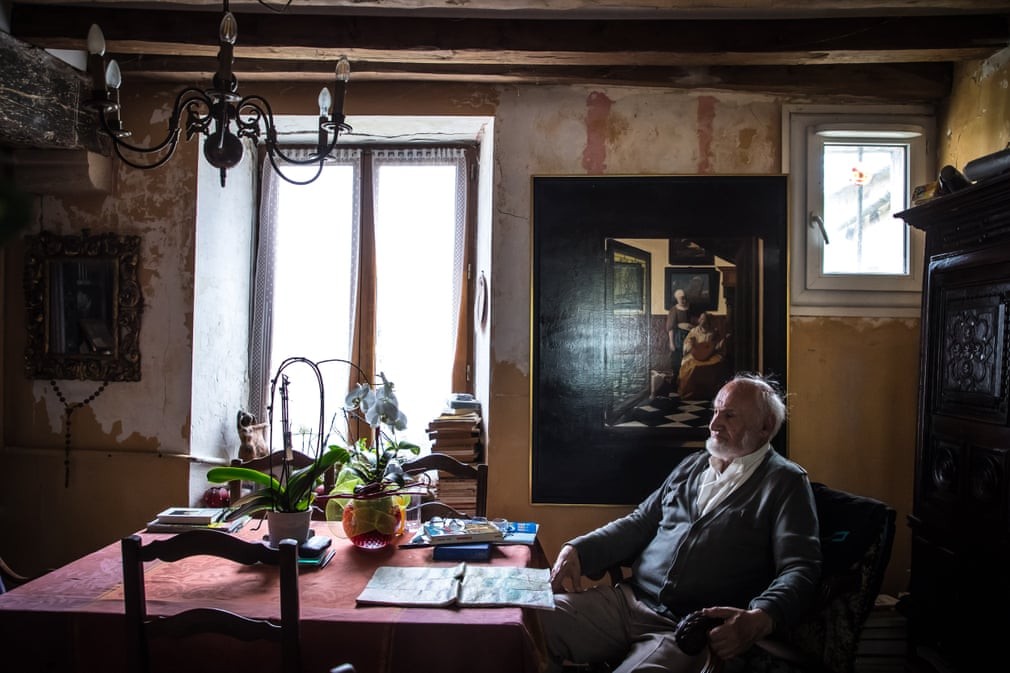 |
| Photograph: Christophe Petit-Tesson/EPA |
What is still there is a series of houses in various states of disrepair, which at times are hard to tell apart from the ones still occupied by the few stubborn residents. Overgrown yards with rusted gates and falling off shutters, peeling doors just asking to be opened. Some had obviously experienced fires, with whole floors fallen away, leaving only the skeleton of the building behind. Others were still full of the possessions departing residents were unable to take with them. In some houses, it seemed like only yesterday that they had been vacated, with writing desks still open and books spilling over the floor, and cellars full of (now empty) wine bottles.
Over the years it seems squatters have moved in, as evident from the occasional mattress, the usual signs of graffiti tagging, as well as smashed glass bottles. Despite this, the town maintains a beautiful eeriness. This is most obvious in the chateau, now almost totally in ruin. It is possible to stand on the edge of the ground floor and see the innards of the whole building, the basement and the upper floors.
The only building to have withstood the neglect is the Church of St Peter and St Paul – a building erected in the 1300s and now classified as a historic monument that requires the protection of the state.
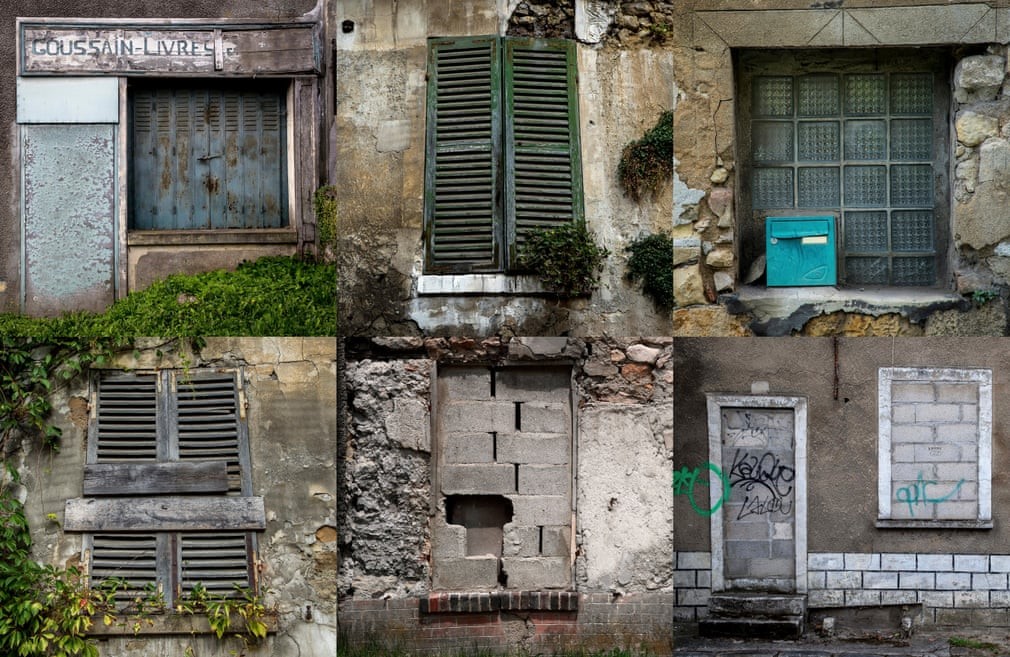 |
| Doors and windows of abandoned houses. Photograph: Christophe Petit-Tesson/EPA |
There is some hope for the future of Goussainville-Vieux Pays however – although a return to its pastoral, pre-1970s roots seems highly unlikely.
As with every major metropolis, Paris’ suburbs are rapidly expanding – sucking once-rural areas into the city and turning historically rustic streets into teeming urban neighbourhoods.
While 40 years have passed since the plane crash, no attempt yet as been made to reclaim the land, though its proximity to Paris means that it is probably only a matter of time until it falls victim to renovation.
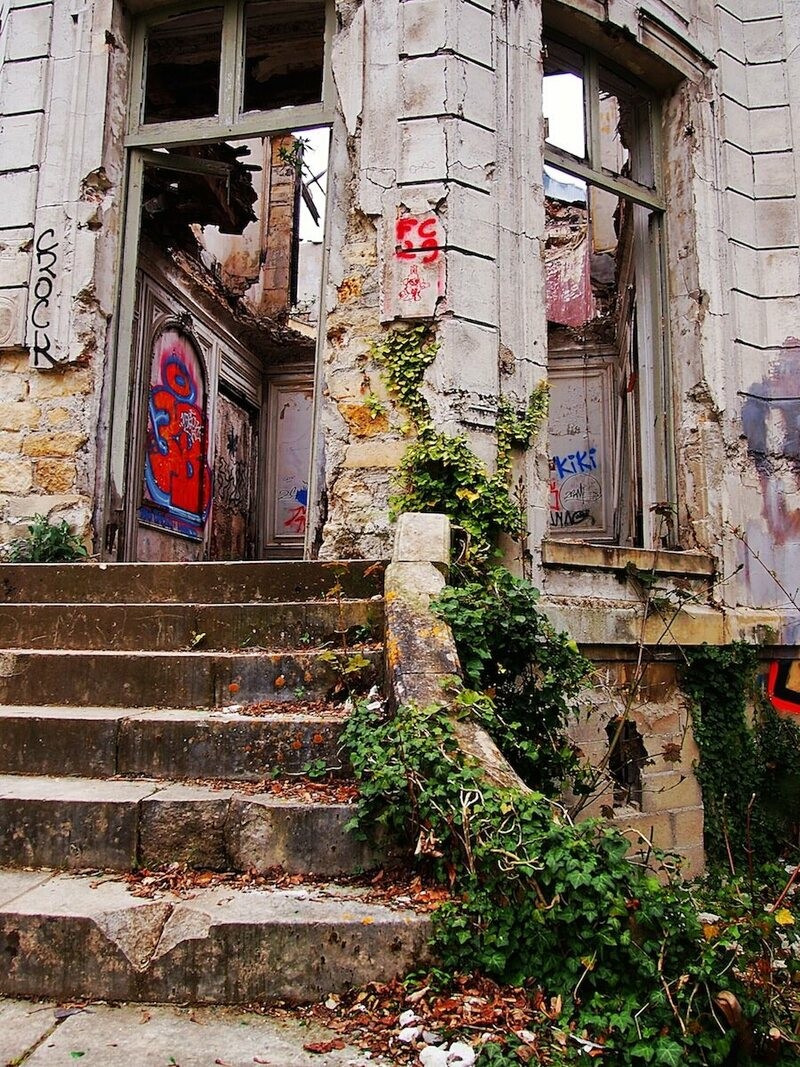 |
| Photograph: Opelia Holt |
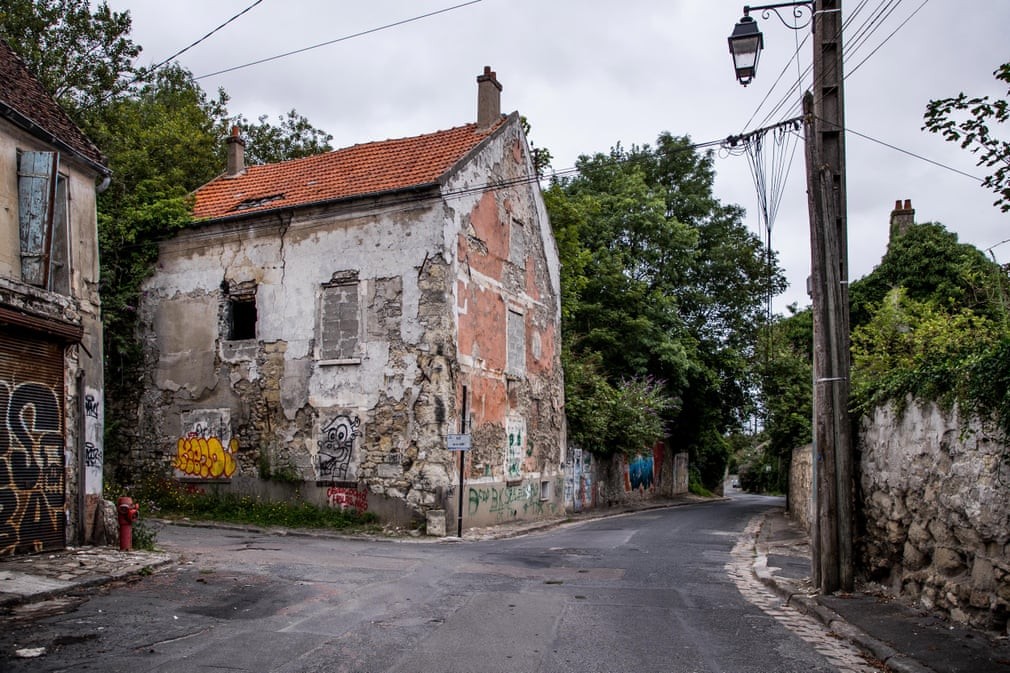 |
| A deserted street at the Vieux Pays in Goussainville. Photograph: Christophe Petit-Tesson/EPA |
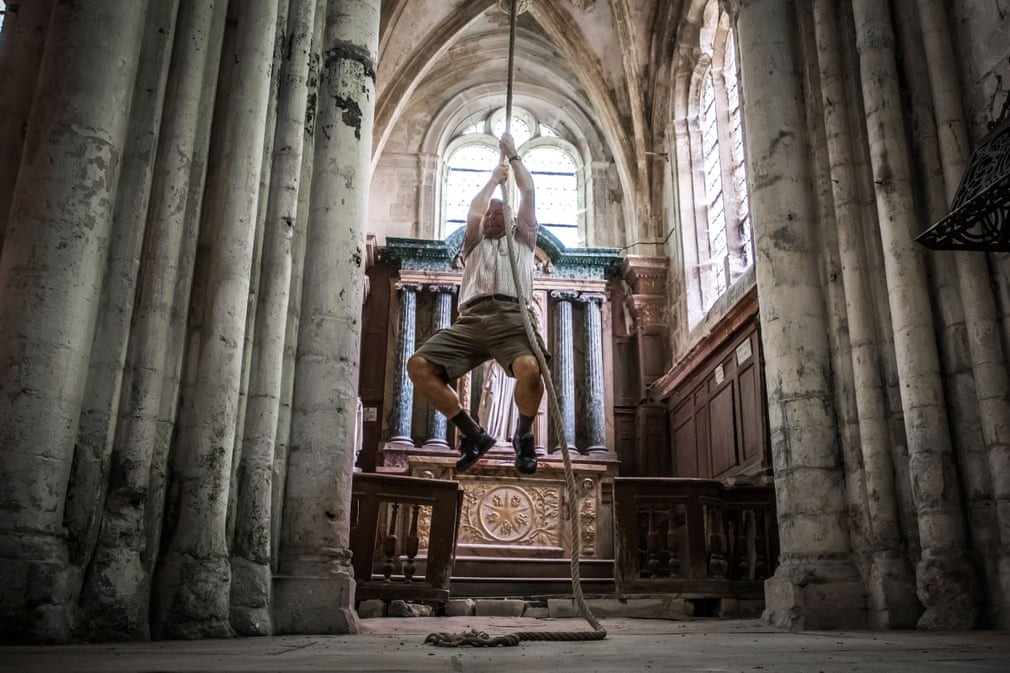 |
| The sacristan of the Church of Saint-Pierre-Saint-Paul, Philippe Vieillard, regularly maintains the abandoned houses around the church, and rings the church bell. Photograph: Christophe Petit-Tesson/EPA |
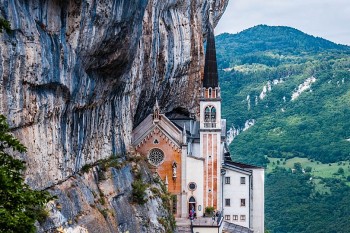 | Santuario Madonna della Corona: A Dangerous and Irresistible Secluded Paradise In Northern Italy, tourists are greatly attracted to one of the most famous destinations: The breathtaking Santuario Madonna della Corona (Sanctuary of the Lady of ... |
 | Kingdoms of Street Food: Discover Greatest Cities For Street Food in The World When you come to a new city, the first thing you want to try is street food, and in some places, it is one of ... |
 | Sigiriya Rock Fortress: The Acient Masterpiece of Sri Lanka Lying deep in the forest, there is an ancient rock fortress with century-old history, and is also a famous place for archaeological research, tourism and ... |
Recommended
 World
World
‘We stand with India’: Japan, UAE back New Delhi over its global outreach against terror
 World
World
'Action Was Entirely Justifiable': Former US NSA John Bolton Backs India's Right After Pahalgam Attack
 World
World
US, China Conclude Trade Talks with Positive Outcome
 World
World
Nifty, Sensex jumped more than 2% in opening as India-Pakistan tensions ease
 World
World
Easing of US-China Tariffs: Markets React Positively, Experts Remain Cautious
 World
World
India strikes back at terrorists with Operation Sindoor
 World
World
India sending Holy Relics of Lord Buddha to Vietnam a special gesture, has generated tremendous spiritual faith: Kiren Rijiju
 World
World


